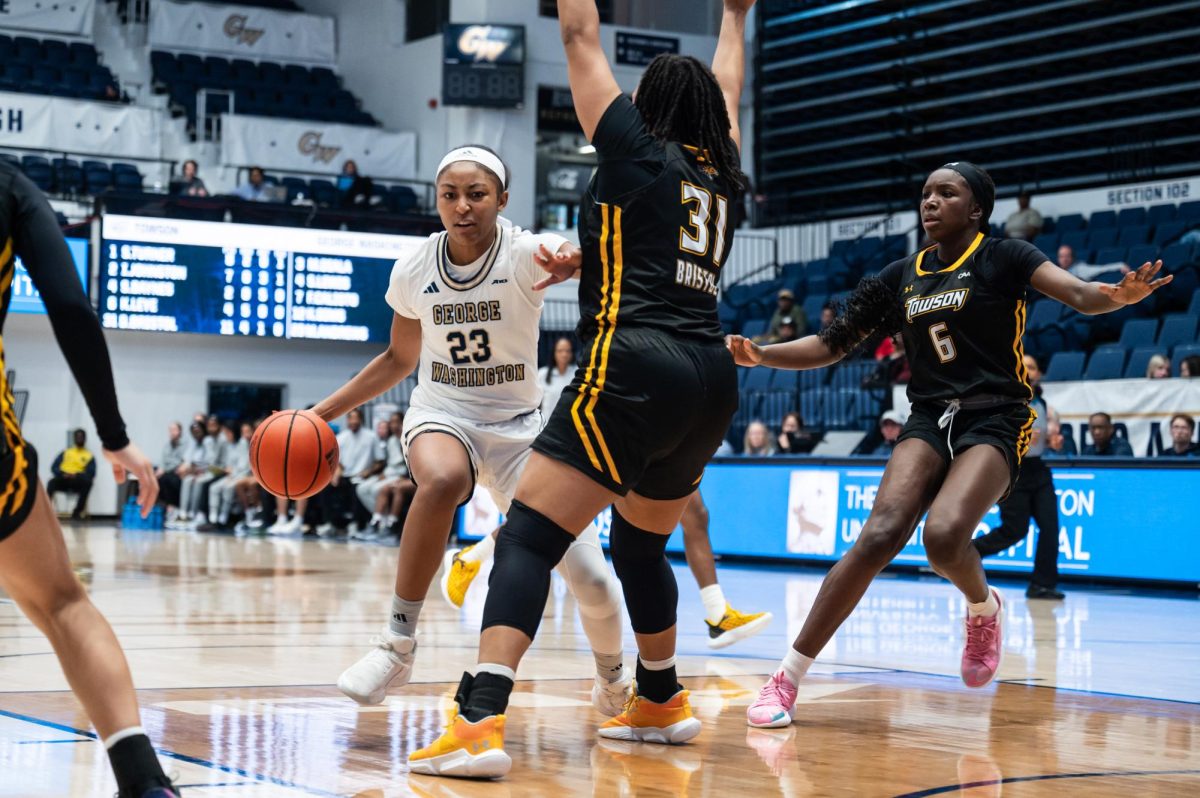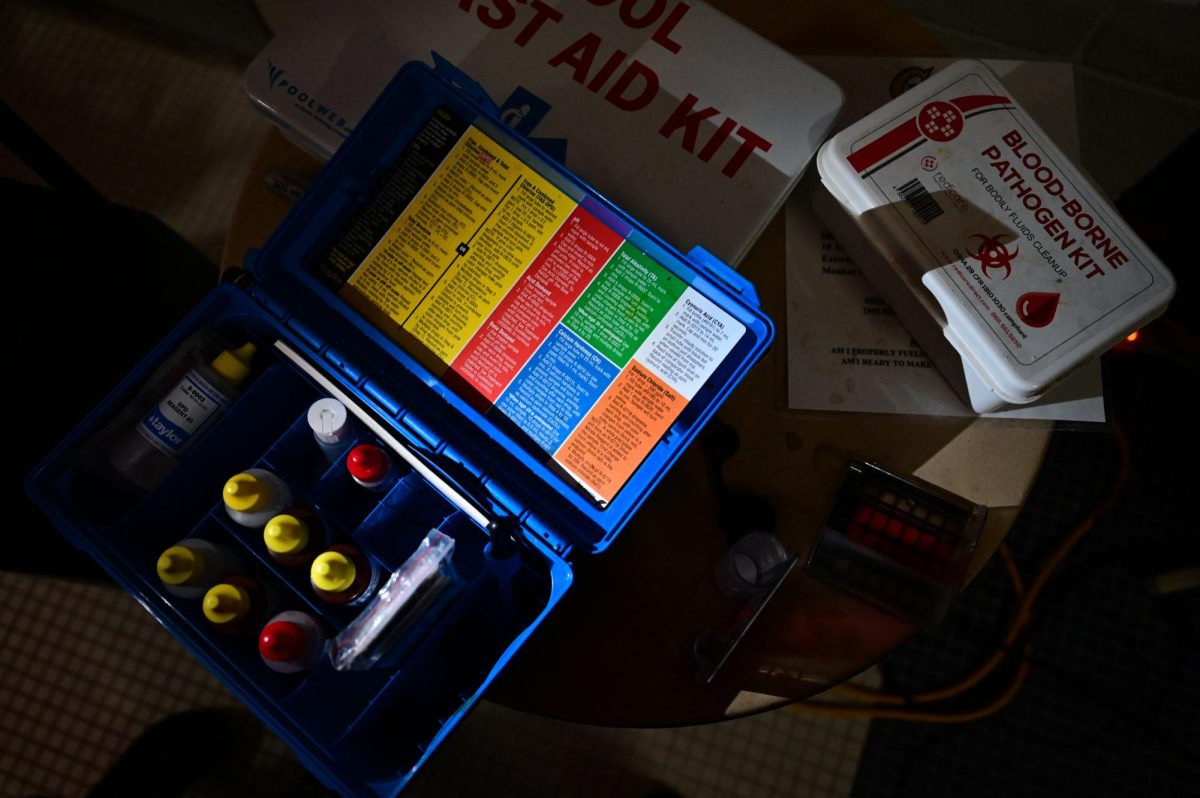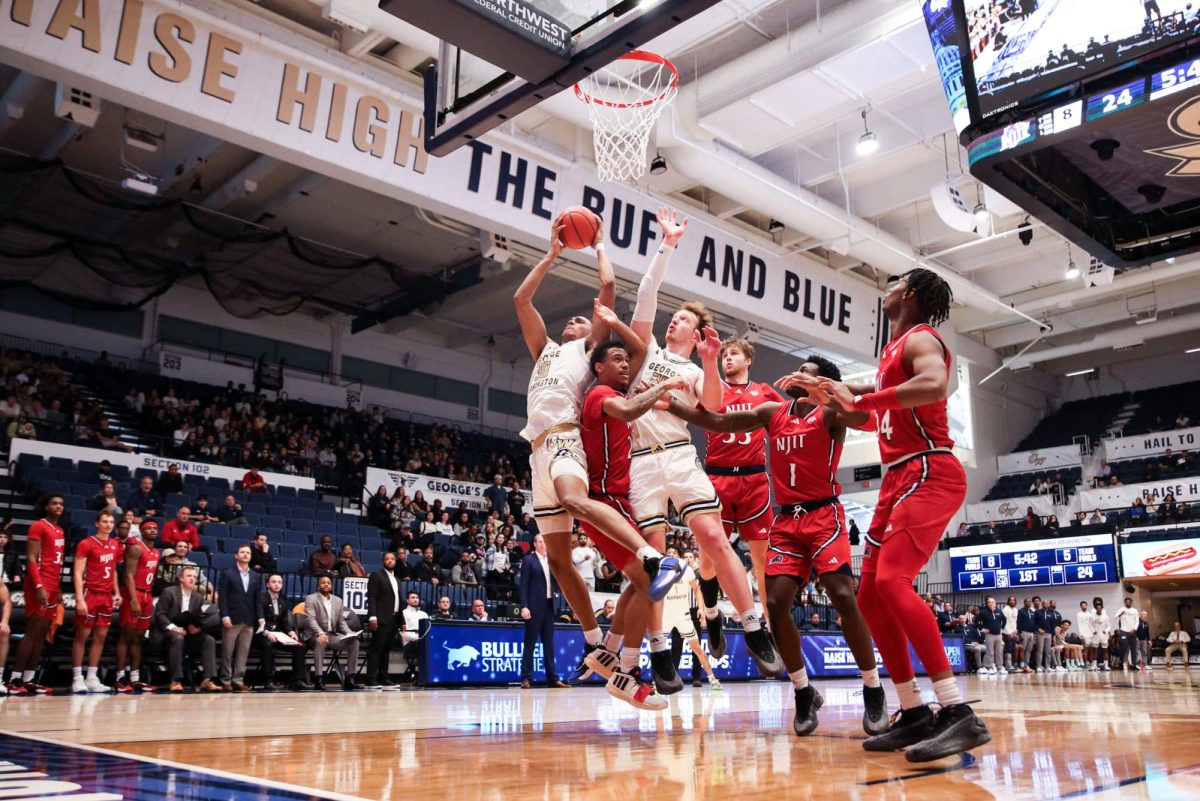Men’s basketball coach Karl Hobbs proposed a new student-athlete academic center during a University Board of Trustees meeting last week. Right now, he said the plan is only “in talking stages” and it is “something he wants very badly.”
But in reality, his plan is still in the primordial phase. There have been no official blueprints or written plans and with limited land, budget and office space, it is unlikely the University will buy into Hobbs’ idea anytime soon.
Still, Hobbs believes there is a need for improvements. Every weekday, GW athletes attend study hall at the Athletic Academic Support Office at 613 22nd St., directly across the street from the Smith Center. Hobbs said the second floor space can be cramped and is not always conducive to getting work done efficiently.
“We’ve got to create some space, somewhere, and have that for athletes where they can go, and they can study and use computers,” he said after a Colonials’ practice Tuesday. “Because what we have now is okay at best.”
The current office has 10 personal computers, and there are seven cubicle style desks for students to use. The place gets crowded, especially with basketball players, who by nature are bigger than most other athletes at GW. Hobbs lauded GW’s tutoring and academic counseling, saying his concern is primarily a facilities issue.
“You go into our center now,” Hobbs said. “(When there are) seven guys in there it’s very difficult to focus and concentrate.”
“When there are a lot of people in there it’s tough to study,” junior soccer player Andre Chapman said. “There’s no way to keep people from not talking to each other.”
A new academic center, Hobbs said, would solve this problem. In making the case for such a new athletic department facility, the coach also emphasized his commitment to help his players (and athletes in general) succeed academically and graduate.
But there is also a recruiting motivation for Hobbs, who, like other GW coaches, has to draw prospective student-athletes to a school that lacks a new arena, high-tech training facilities or a traditional campus.
“We’re competing,” Hobbs said. “Not only are we competing athletically, we’re competing academically.”
University officials were non-committal about the proposal but said it is worth looking into.
“Conceptually, it’s something that we would certainly want to explore,” said Robert Chernak, Senior Vice President of Student and Academic Support Services. “But not at the exclusion of other students.”
“The question I think is, taking into account the unique time management needs that athletes have,” Chernak added. “Is there a way of perhaps bringing the focus to some of the functions to deliver them in such a way to help student (athletes) progress towards a degree?”
Right now, academic support services are doing well with what they have, said GW Academic Coordinator Karen Ercole. While improvements are always on the department’s wish list, she is not expecting major changes anytime soon.
“In any facility there’s always a need for improvements,” she said. “But that’s not always feasible.”
Ercole said it is not as if the University has ignored athletes’ academic needs over the years. When she arrived at GW with former coach Mike Jarvis 15 years ago, Academic Student Support Services was located in the basement of Stuart Hall on G Street. There was far less space back then, when athletes were forced to use hallways to study because of limited classroom space.
Chernak and Ercole noted that many students who are not athletes have time management issues, such as jobs and internships, and academic challenges that create the need for tutoring.
But Hobbs said student-athletes are unique, pointing to inflexible practice times and travel schedules.
“I would love to tell you that they’re normal students,” Hobbs said of his players. “The reality is that they’re not normal students. Normal students don’t play before 5,000 fans. Normal students don’t practice three hours a day. Normal students don’t go to Ohio to play two basketball games. They’re not normal students.”






